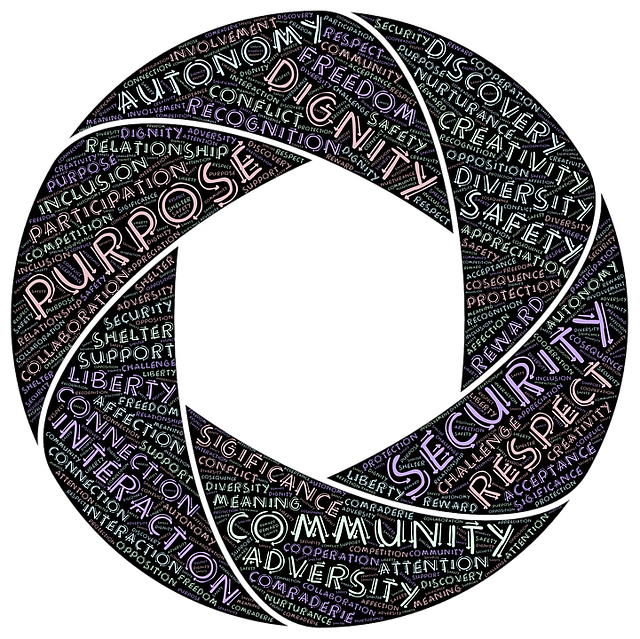The challenge we are confronted with during various stages of our life is to decide what is our purpose in life. Finding that unique purpose can lead to a singular focus, total commitment and “unified action”, where your contribution to community – utilising your unique knowledge, skills, experiences, insights, and connections – becomes your unifying focus. Trent Dalton, journalist and author of All Our Shimmering Skies, tells the story of how domestic and family violence became the catalyst for Nicolle Edwards and husband Gareth to identify and pursue their life purpose in the form of RizeUp Australia, a registered charity providing concrete support to women and families fleeing domestic violence.
Trent’s story, Hands & Hearts in the Australian Weekend Magazine (12-13 December 2020), describes the practical help that RizeUp provides in terms of furnishing a house for domestic and family violence refugees. With the help of a large social media following and a very large group of volunteers, Nicolle and Gareth provide home-making support for DV refugees when they move out of a Women’s Shelter to often-unfurnished, emergency accommodation. The list of furniture and accessories provided at no cost (or fuss), including bedding and basic appliances, is extensive and very impressive – all provided and set up for free through donations of goods and money and the donation of time and effort by volunteers in the RizeUp network. Nicolle comments in the article that the “sigh of relief” of the recipient mother is motivation enough for her to dedicate herself to this life purpose.
Nicole realised that she could help domestic violence refugees and their children when she turned to social media to provide help to a DV refugee very early on (before RizeUp was created in 2015). She was amazed at the response and with Gareth created the RizeUp network, which has now set up more than 980 homes for DV refugees and their families. The RizeUp Facebook page provides many photos showing volunteers at work and the kind of practical home support provided by the network. Nicole and Gareth demonstrate the strength and sensitivity required to pursue your life purpose.
My story – my experience of domestic and family violence
I experienced domestic and family violence as a child because my father, who was suffering from PTSD, had become an alcoholic. I heard the many shouting fights between my mother and father because he was spending so much of our income on alcohol. I do recall our family at one stage living off food donations from the St. Vincent de Paul Society. I also recall the times when my mother ended up in hospital after particularly violent arguments.
I left home immediately after Grade 12 to study in Victoria and when I returned five years later the situation had not improved. So, one day when my father was at work, I helped my mother pack her things and moved the both of us to a small house at the back of a shop. The strangely happy part of the story is that after my parents divorced, my father remarried, gave up alcohol and walked every day for an hour for his physical and mental health. He also used to drive my mother to church each Sunday after the separation.
It is only as I grew older that I realised how little support there was for my father whose nerves were shattered after serving in the Australian Army in Singapore in the Second World War. He had been a prisoner-of-war in Changi prison for 18 months following the capture of Singapore by the Japanese. Stephen Wynn describes life after The Surrender of Singapore as “three years of hell”. Not long after my father’s release from Changi, he was deployed as part of the Allied Occupation Forces in Japan.
On reflecting on these early life experiences of domestic violence, I believe that they have unconsciously motivated me to work towards developing mentally healthy workplaces and communities both in my consulting and writing. In my organisational consulting work, I have particularly worked with managers to build managerial mindfulness – consciousness about the impact that their words and actions have on the development of a productive and mentally healthy workplace. In writing this blog, I have focused on mindfulness, mental health, trauma, and leadership as my contribution to providing individuals in the community and managers with resources, practices, and processes to create a mentally healthy life.
What is your story?
Recently, Tami Simon from Sounds True introduced a new publication written by Rebecca Walker and Lily Diamond who took ten years to develop and refine the reflective processes incorporated in their book. The transformative and interactive journal, titled What’s Your Story: A Journal for Everyday Evolution, provides a series of strategic questions to help you reflect on your life story (by theme and/or area of your life). The deeply penetrating questions are designed to challenge self-limiting beliefs and throw light on a possible path forward. The authors hope to enable you “to begin living your most authentic, creative, and meaningful life”.
Reflection
Sometimes the search for our life purpose is confounding and confusing – it seems to go around in circles before achieving some degree of clarity. Our life purpose might prove illusive because it can be changing over time. As we gain greater personal insight and experience different catalytic events, we may find that what was truly purposeful and meaningful at one point in our life, is no longer adequate or energizing. As we grow in mindfulness through journalling, meditation and reflection, we can develop an expanded view of what we are capable of, build the courage to pursue our unique purpose, and positively impact others and ourselves. It is in achieving alignment with our life purpose that we find meaning and happiness.
Another useful resource is an eight-week course, Your True Calling, which is available online at Sounds True. The author Stephen Cope, wrote the book, The Great Work of Your Life: A Guide for the Journey to Your True Calling.
___________________________________________
Image by John Hain from Pixabay
By Ron Passfield – Copyright (Creative Commons license, Attribution–Non Commercial–No Derivatives)
Disclosure: If you purchase a product through this site, I may earn a commission which will help to pay for the site, the associated Meetup group and the resources to support the blog.

